Human thought—well, probably >99.9% percent of it—is derivative.
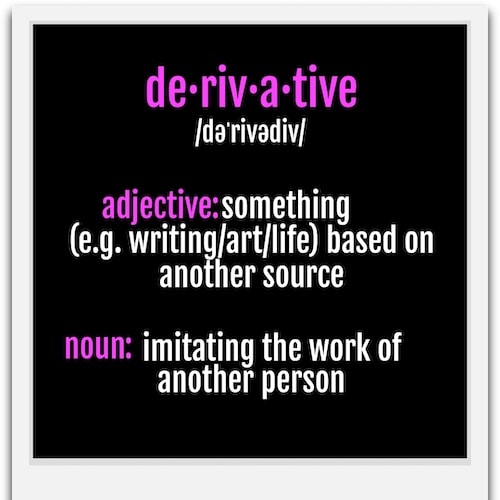
Derivative? What does that mean? That most thoughts are not new but are developed from other ideas or copied or extremely similar to something else. Most human thought is not original but is built on the ideas, theories, works, even the life, of others.
Example? The movie Julie and Julia (2009). Julie was a woman who received fame and a movie because she cooked all the recipes in Julia Child’s cookbook in a year and blogged about it. She even felt like Julia Child should meet with her because of this secondhand fame built on Child’s life. Weird, and one of Nora Ephron’s rare misses, IMO, although someone commented that half the movie was great (Stanley Tucci and Meryl Streep’s Julia Child part. Agree, and every time I chop onions, I think of this movie.)

I trained as a bench scientist in molecular genetics for my PhD. I built my “original” research and earned my doctorate by studying the work of other scientists who used derivative genes. Instead of human, I defined a rabbit gene. I set up my research using a path already cut in other work. My PhD was derivative. I thought I was smart enough for graduate school but looking back and seeing the EXPLOSION of graduate programs and degrees, I was just a cog feeding the cycle of government grant money that supports a lot of mediocre research and A LOT of jobs. On the bright side, it taught me to write my research as a story and I turned that into my second career as an author—even if I’m pretty sure my writing career will match my scientific one. It keeps me out of trouble. (BTW, scientists are some of the biggest grifters out there. You’ve heard of “trust but verify”? Nope. Don’t trust until verified.)
We are told as authors to be derivative when we pitch our stories.
You’d know exactly what I meant if I told you “Hunger Games meets Jurassic Park,” or “Stranger Things meets the Chronicles of Narnia,” or “Pride and Prejudice meets Frankenstein.” Yes, all these books/graphic novels/TV shows exist, and all of them are derivative, even if they “blend” amazingly different concepts. Authors/writers are told to find their comparables so readers KNOW what they are getting. Derivative on steroids.
My books? Let’s call them different but the same.
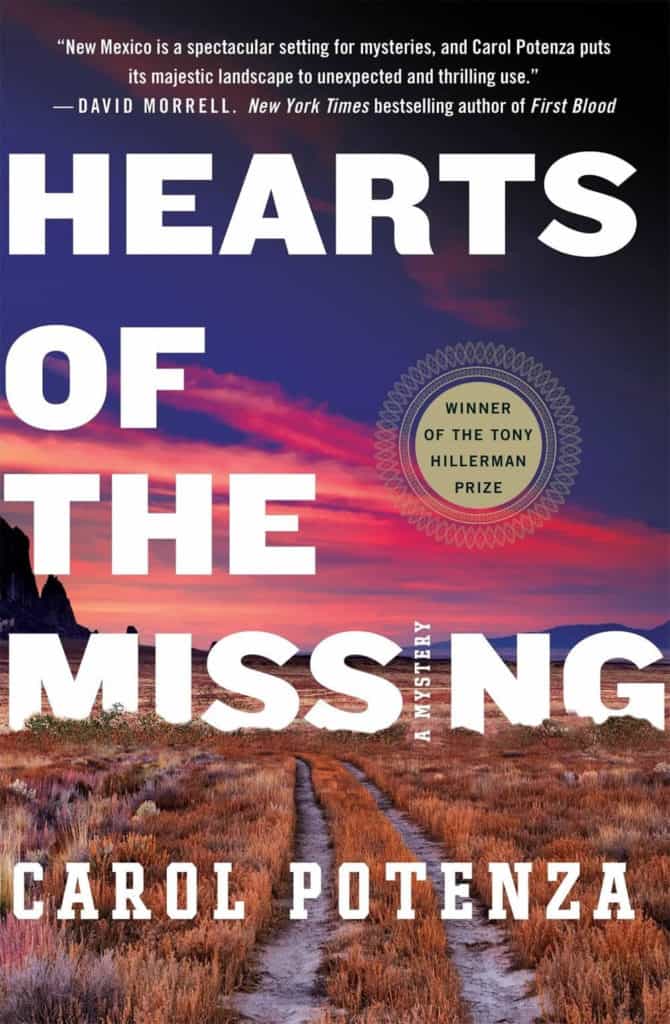
The Nicky Matthews Mystery series started with a Tony Hillerman prize for the first book, Hearts of the Missing (2018). Police officer (TH vs CP; male vs female; Native vs White) on an Indian Reservation (Navajo vs fictional Pueblo Fire-Sky) in New Mexico solving crimes. Different but the same.
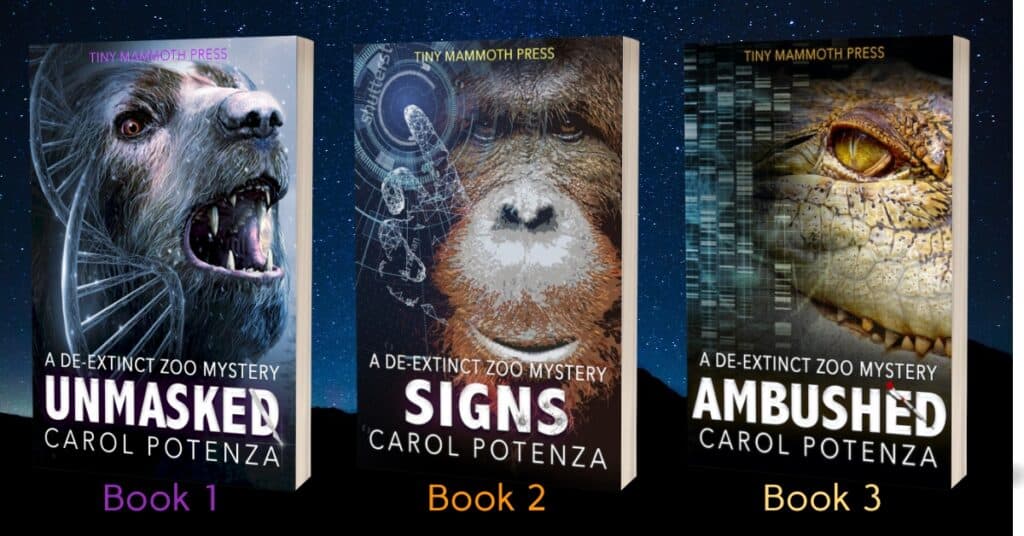
The De-Extinct Zoo Mystery series (Unmasked, 2022: Signs, 2023; Ambushed, 2024) I came up with based on three derivative concepts: Dean Koontz’s Nameless series, George Church’s real life mammoth cloning project, and Michael Crichton’s Jurassic Park (1990) but with Pleistocene megafauna.
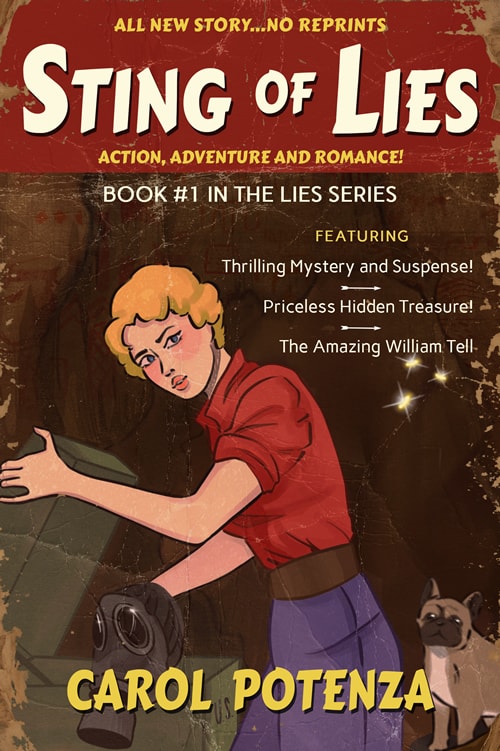
I haven’t yet completely figured out The Lies Mystery series—Sting of Lies (2023)—but The Monuments Men (2009) will play a big role in a couple of the books, as did pulp magazines for the cover.
Humans actually like derivative.
It’s comforting, familiar, safe. You can’t build a skyscraper without a foundation, and the whole of human original thought (Seriously, who thought up bread?) allowed us to get where we are today. Sure, some of where we are isn’t good, but human thought is amazing, and I trust future original and derivative thought and action to pull us through the bad patches. I really do.
One more thing.
One of my writing goals this year (2024) was to blog about anything I wanted to. Experts on book marketing as well as friends often advise authors/writers with a product to sell to avoid controversy. Don’t alienate anyone in or out of your audience, especially in this time of cancel culture. Authors have lost agents, contracts, and book deals because they go viral over something they’ve done directly or indirectly (1, 2, 3, 4). Yes, and sometimes what they did was incandescently stupid. But sometimes, it wasn’t, and they paid a huge price. Welp, I don’t have an agent, I don’t have traditional publishing contracts, and I don’t have any pending book deals. What I will rely on with my blog posts this year is relative anonymity to keep me off the cancel culture list.
Yeah, let’s go with that.


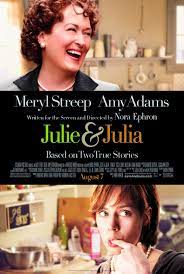
 Oxygen, Giant Bugs, and the Periodic Table of DEATH & Mystery
Oxygen, Giant Bugs, and the Periodic Table of DEATH & Mystery
Leave a Reply